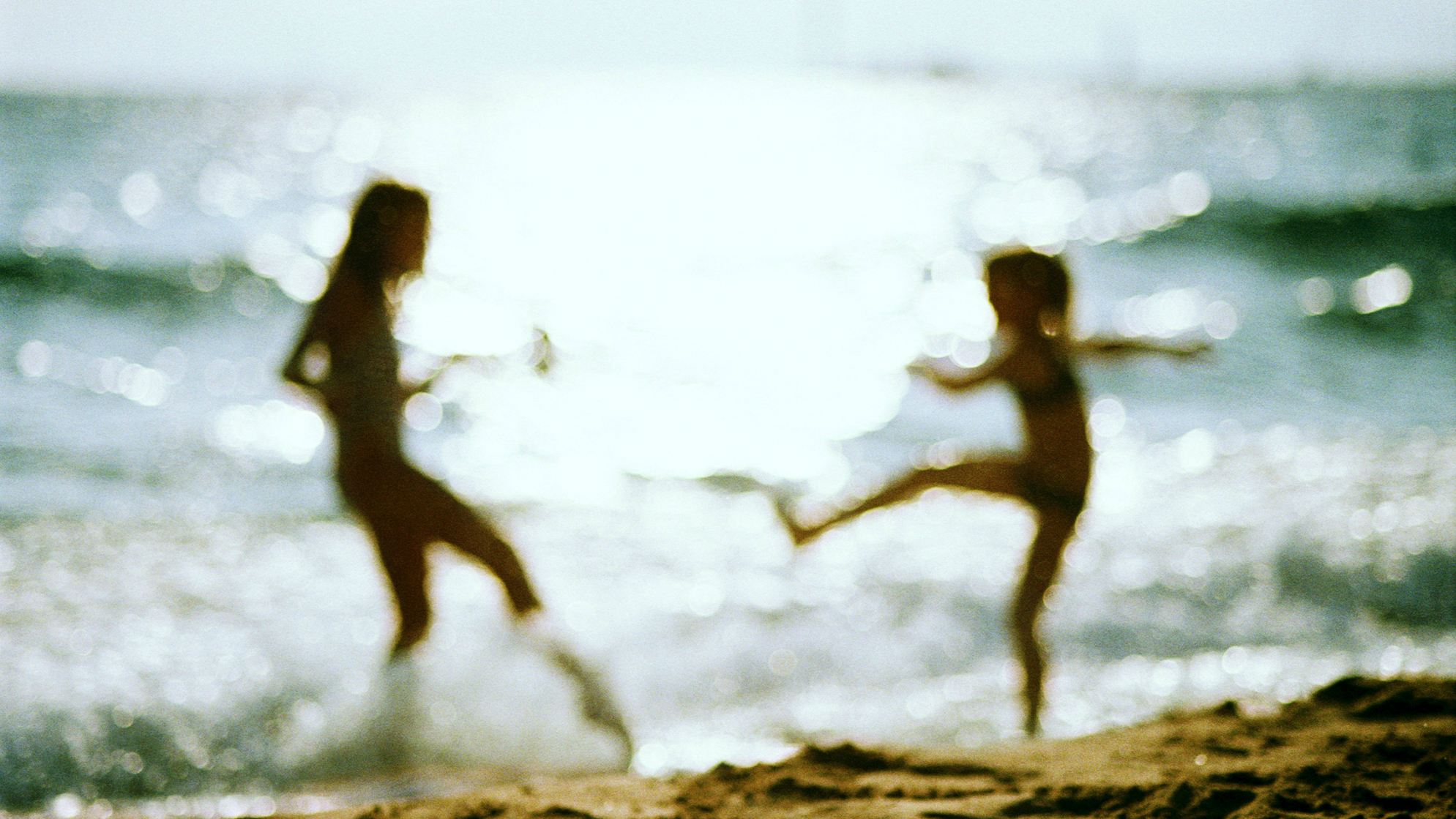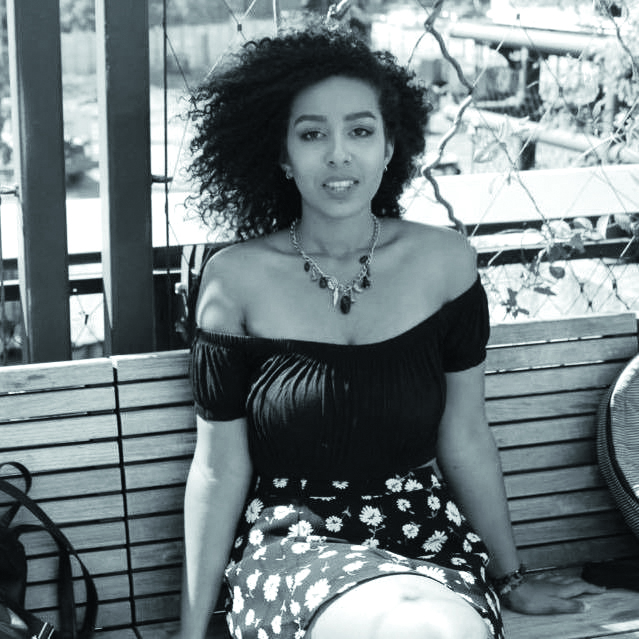'I grew up believing I was white': One writer's story on unravelling a web of family secrets
When Georgina Lawton’s beloved dad died, she finally unravelled a web of family secrets that had plagued her for years.

When Georgina Lawton’s beloved dad died, she finally unravelled a web of family secrets that had plagued her for years.
This week Georgina Lawton has released her new book, Raceless, looking at the impact of race and identity on our lives.
Words by Georgina Lawton
‘Why don’t you scratch yourself white?’ said a five-year-old girl in my class as we played in the sandpit at school.
This was the first time I experienced a sense of confusion about my own appearance. The way her fingernail felt as she scraped it across my beige forearm remains a vivid memory. Because even though I’ve looked black or mixed-race since birth, I grew up believing I was white. I’d been fed the same story by my parents: I wasn’t adopted, or switched at birth, or the product of an affair; I had inherited my genes from a dark-skinned Irish relative on my mother’s side, which had ‘skipped’ a few generations.
The truth, which only came to light last year after my father’s death, was that I was not his child, but the result of a brief hook-up between my mum and another man. My dear dad, with his economics degree and managerial job, never questioned Mum’s version of events. And my white brother Rory, who has Dad’s blue eyes and his long, curved feet, never queried it either. My brown skin and frizzy black hair stood out in family photos. But it was easier for everyone to ignore my differences.
Cloaked in the protective bubble of whiteness, I didn’t spend much time thinking about race. It didn’t affect me until an outsider – like a child at school – brought it up. Overall, my upbringing was a happy one: I had two very present, hands-on parents; at school, I was a high achiever with lots of friends.
Celebrity news, beauty, fashion advice, and fascinating features, delivered straight to your inbox!
And yet, looking back, it’s easy to pinpoint where the nagging self-doubt crept in. At 15, I flirted with bulimia; from 17, I bleached the life out of my hair, and with every passing comment about why I didn’t look like my family, I developed another layer of prickly defensiveness. The web of lies was already moulding my character.
The questions about ‘where I was really from’ and the queries into my identity were persistent, unwavering, draining. If I beat observers to the punch, I could own my narrative. But when airport security would usher me into the queue for baggage check-in with the Caribbean couple in front of me, instead of my own family, it was alienating. At 13, I was told to ‘go back to Africa’ and was once labelled a ‘Paki’, which just intensified the confusion.
With each incident I went home and demanded answers from my parents, who would sit me down and repeat again that I was definitely theirs and that they loved me. Mum wanted to believe I was my father’s daughter, which by definition made me white.
Georgina with her beloved dad
Dad was complicit, but whether he knew the truth deep down, I’ll never know. Everyone seemed happy to go along with the pretence and it became easier to explain my skin colour to strangers by saying, ‘I’m half-Jamaican’.
Dad’s illness last year was the catalyst for change, though. As I watched the cancer brutally eviscerate my beloved, white dad from the inside out, I was devastated by the reality that he would soon be gone. I was also acutely aware it was my last chance to raise all the uncomfortable questions that plagued me. Mum told me that pursuing the subject was selfish. But one day, after I gently hinted at my desperation, he consented to giving me a DNA sample before he died, lovingly reassuring me I was biologically his.
It was a whole year after his death, consumed by grief, that I decided I had nothing to lose. In March 2016, I began the process of testing his DNA and discovered that, by blood, we were not related at all.
I remember where I was when the test results came through, rather ghoulishly in an email. Nothing can prepare you for processing that kind of information at work. I felt like my blood had been sucked from my body with a syringe. Despite it being obvious, I still didn’t want to believe it. Distraught, I phoned the company to ask how reliable the results were. They were sympathetic, but I was told, ‘Almost 100 per cent. You’re not your dad’s’.
When I hung up and called my mum, she said she was as shocked as I was. Her denial went on for weeks, as I sobbed into my pillow each night. I’d just learned to process the father-shaped hole in my life, but there was no handbook for how to navigate this emotional minefield. I couldn’t cope.
When I challenged Mum − vociferous in my questioning and utterly broken − she looked at me blankly and told me there must be some mistake. Despite existing in a dream-like trance, unable to call my father my own any more, I still didn’t suspect her of lying − it was just too distressing to start sieving through everything she’d ever told me.
Finally, a full month and countless arguments later, Mum cracked. I had just suggested a re-test using DNA from Dad’s parents when she confessed to her one-night stand with a ‘dark’ man from Dublin, who she had met in a west-London pub in 1992. This was all she knew about him. To say things have been rocky since would be an understatement. Nine months on, I’m still so angry I can barely look at Mum. I lie awake replaying all the times I’d asked her if there was a possibility I couldn’t be Dad’s. Why couldn’t she have just told me the truth? We’d have been OK.

Georgina in New York
I’ve spent my whole life vehemently fighting a race battle that my parents were blind to and carrying the weight of the lie about my mother’s affair.
I know Mum loves me, and I still love her very much, but she still finds it hard to discuss the impact this has had on me, which just compounds the feelings of isolation and loneliness I’ve buried. Although these wounds are still fresh, I’m hopeful we’ll work through everything, because I do want her in my life. I also want to take time to focus on grieving for Dad, and learning about the culture I may be connected to.
Still consumed by grief, I made a clean break and moved to New York this year. I’ve been living in Brooklyn and immersing myself in a very mixed area. My next plan is to undertake a more comprehensive DNA test to determine my ethnic roots as a method of catharsis and, through my website, to encourage others suffering with identity issues to face them head-on.
For me, racial identity is fluid, and determined by the people in my community, who just so happen to be white. I exist in a race-less space, with less knowledge of my heritage than ever before, but I’m determined to forge an identity on my own terms, no matter what that entails.
Read Georgina Lawton's blog here
This article was originally published in October 2019.
The leading destination for fashion, beauty, shopping and finger-on-the-pulse views on the latest issues. Marie Claire's travel content helps you delight in discovering new destinations around the globe, offering a unique – and sometimes unchartered – travel experience. From new hotel openings to the destinations tipped to take over our travel calendars, this iconic name has it covered.